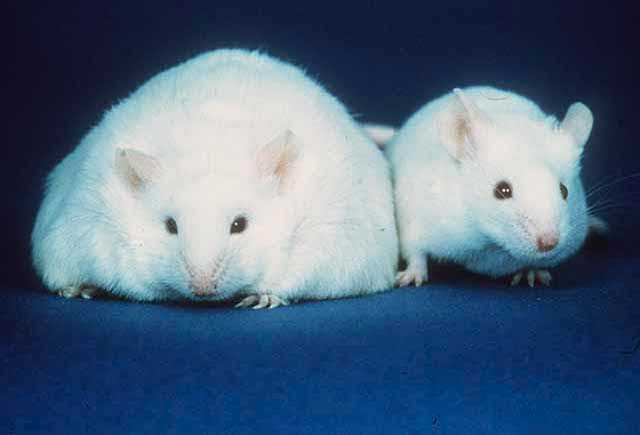A chemical extracted from an Asian vine causes obese animals to return to a normal body weight within a few weeks, a new study has announced.
Tripterygium wilfordii, also known as the  thunder god vine, grows in China, Korea and Japan. It's been used traditionally for generations as a herbal remedy for a range of maladies, but now a team of US scientists, led by Umut Ozcan at Harvard Medical School, have found that a compound present in the plant has a powerful anti-obesity effect capable of slimming down fat rodents within days.
thunder god vine, grows in China, Korea and Japan. It's been used traditionally for generations as a herbal remedy for a range of maladies, but now a team of US scientists, led by Umut Ozcan at Harvard Medical School, have found that a compound present in the plant has a powerful anti-obesity effect capable of slimming down fat rodents within days.
The team were looking for compounds that could sensitise the brain's appetite centre to the hormone leptin, which is a signal produced by fat cells to inform the brain about how much energy an individual has stored about their body. A high level of leptin signals a full tank, which should stimulate the brain to curb appetite. But in overweight individuals, for reasons that are poorly understood, the brain becomes insensitive to the leptin signal and fails to stem eating behaviour, leading to progressive weight gain.
The Harvard researchers first tested chemicals that were weakly effective as leptin sensitisers and looked at the pattern of changes that they produced in the genes that were switched on in the hypothalamus appetite centre. They then screened a database of more than 1000 different chemicals for compounds that were known to produce a similar pattern of gene changes when they were added to cells. One chemical, called Celastrol, which is found in the thunder god vine, stood out as the closest match.
Obese mice treated with the agent, either orally or by injection, showed dramatic reductions in weight loss, cutting food intake by 79% and dropping their body mass by over 25% in just three weeks. Their body fat dropped to a level 40% lower than untreated control animals.
More importantly, animals that received the agent over a long period of time (nearly a year) did not show any evidence of toxicity, and the weight loss also ceased once the animals attained a more normal weight, ruling out a risk of excessive weight loss.
Further tests showed that the administration of Celsatrol produces a surge in the animals' brains of a signal called STAT3, but only when leptin is also present, proving that the main action of Celastrol is to re-awaken the brain's taste for leptin. The treated animals also showed improved glucose metabolism, consistent with their weight loss.
According to the researchers, who have published their work this week in the journal Cell, "The effect of Celastrol is more potent than that reported for baraiatric surgery in mice, with which weight loss is around 35-40%. If Celastrol works in humans the way it does in mouse models, the outcome could be an effective therapeutic approach for the treatment of obesity."
- Previous Paracetamol Harms Unborn Babies
- Next Dare you to click this!










Comments
Add a comment